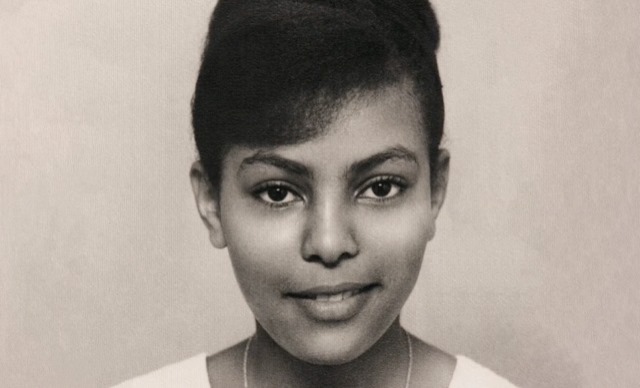Sally was an aristocrat, the daughter of a diplomat; her father’s posting as an Ethiopian diplomat meant that the family lived in various countries before settling in Canada in 1968. Selamawit Dawit – Sally to her friends – went to Carleton University in Ottawa and was a bright, outgoing young student with many friends and hopeful suitors. When the Dawit family arrived in Ottawa in 1968, the children gained a heightened political awareness which led them on diverging paths in their political activism.
In the summer of 1973, Sally traveled to Ethiopia on holiday. She never came back.
In a few short months, Sally’s life changed drastically. She went from being a party girl obsessed with clothes and perfume to a communist and women’s group leader who gave speeches against the Ethiopian government.
During her tumultuous time in the Ethiopian capital of Addis Ababa, she was swept up in the Marxist movement after meeting Tselote Hizkias, deputy commander and future rebel leader of the Ethiopian People’s Revolutionary Party (the EPRP). Deeply in love, Sally and Tselote were married in a small civil ceremony. Together, they fought to overthrow Emperor Haile Selassie. In power since 1930, Selassie was Ethiopia’s Head of State and a close acquaintance of Sally’s father.
Four decades after Sally’s disappearance, Tamara Dawit pieces together the mysterious life of her aunt Sally. She revisits the Ethiopian Revolution and the terrible massacre that followed, which resulted in nearly every Ethiopian family losing a loved one. Her quest leads her to question notions of belonging, personal convictions and political ideals at a time when Ethiopia is going through important political changes once again.
In September of 1974, the military junta (“the Derg”) toppled Selassie in a military coup. Its leader, Mengistu Haile Mariam, declared himself Chairman, ignoring the communist ideals and youth movement that powered the revolution. The EPRP challenged the Derg’s rule and pushed for a broad-based civilian-run democracy while also engaging in campaigns against the military government. The Derg, in turn, launched attacks against the EPRP, sending both the military and armed peasant groups to track down hundreds of “enemies of the state.” Violence soon became widespread across the country.
Sally and her husband hastily went underground. Together, they escaped Addis Ababa and vanished into the mountains of Northern Ethiopia. For years, Sally’s family searched for her throughout Europe, Africa and North America. They desperately chased rumours of her whereabouts, showing her photo to strangers and seeking help from mystics.
Some forty years after the events, director Tamara Dawit pieces together the mysterious journey of Sally, the aunt she never knew. No one in her family had been willing to speak about this mysterious relative, but after years of persistent questioning, family members are starting to fill in the blanks.
Like most Ethiopians, the Dawits learned to stay silent about events that occurred during the “Red Terror”– a bloodbath from 1977 to 1978 that Amnesty International has stated was responsible for the slaughter of hundreds of thousands of people. The Derg remained in power until 1991. If time doesn’t necessarily heal such deep wounds, it at least allows the fear to gradually subside.
Finding Sally features intimate testimonials from Tamara’s grandmother and aunts, a moving collection of recovered family photos, a wealth of fascinating stock footage from the 60s and 70s, and evocatively crafted visuals that invoke the presence of Sally throughout the story. Who was Sally? How and why did she become a revolutionary? Whatever the answers may be, one thing is certain – Sally’s fate is deeply entwined with the fate of the countless individuals who died during the Red Terror. Using Sally’s personal history as a thread, the film sheds light on a dark and little-known chapter of Ethiopian history.
Catbird Films presents in association with Documentary Channel and Cinema Politica Network “𝗙𝗶𝗻𝗱𝗶𝗻𝗴 𝗦𝗮𝗹𝗹𝘆”, a film about the disappearance of the Aunt she never knew existed by her niece Tamara Mariam Dawit.

